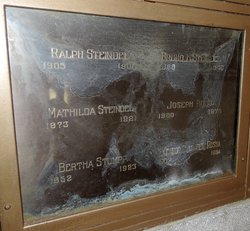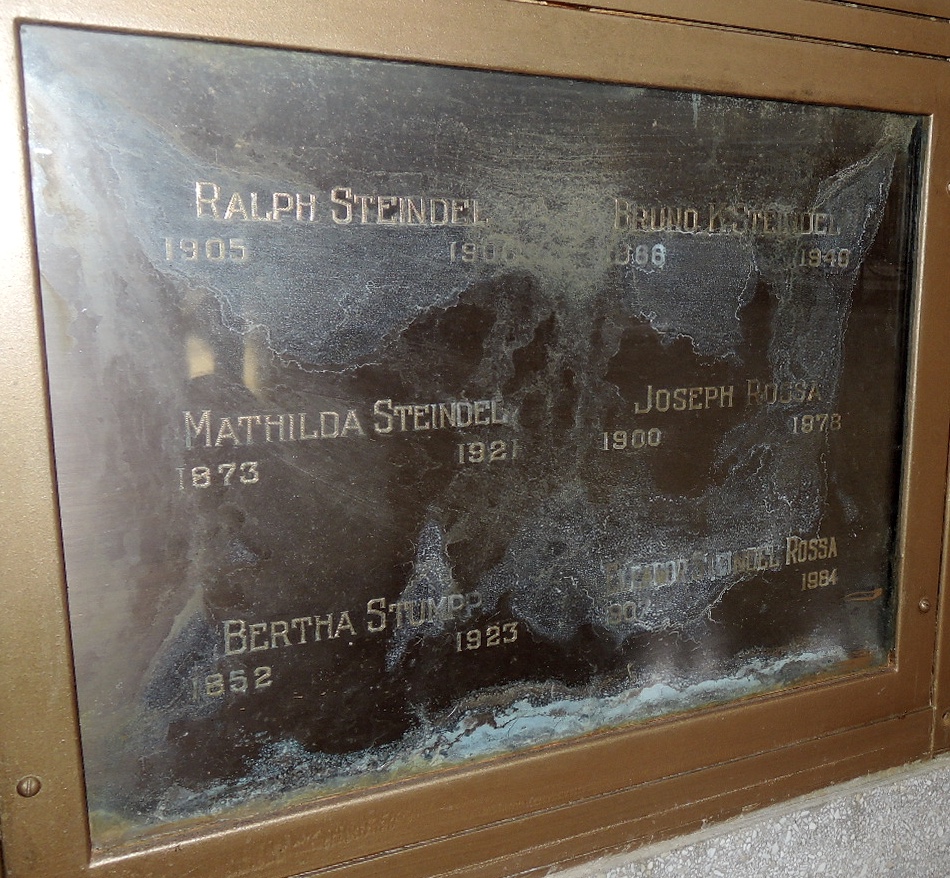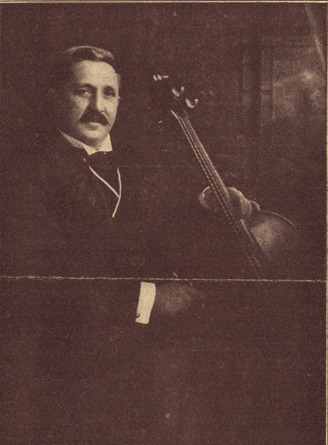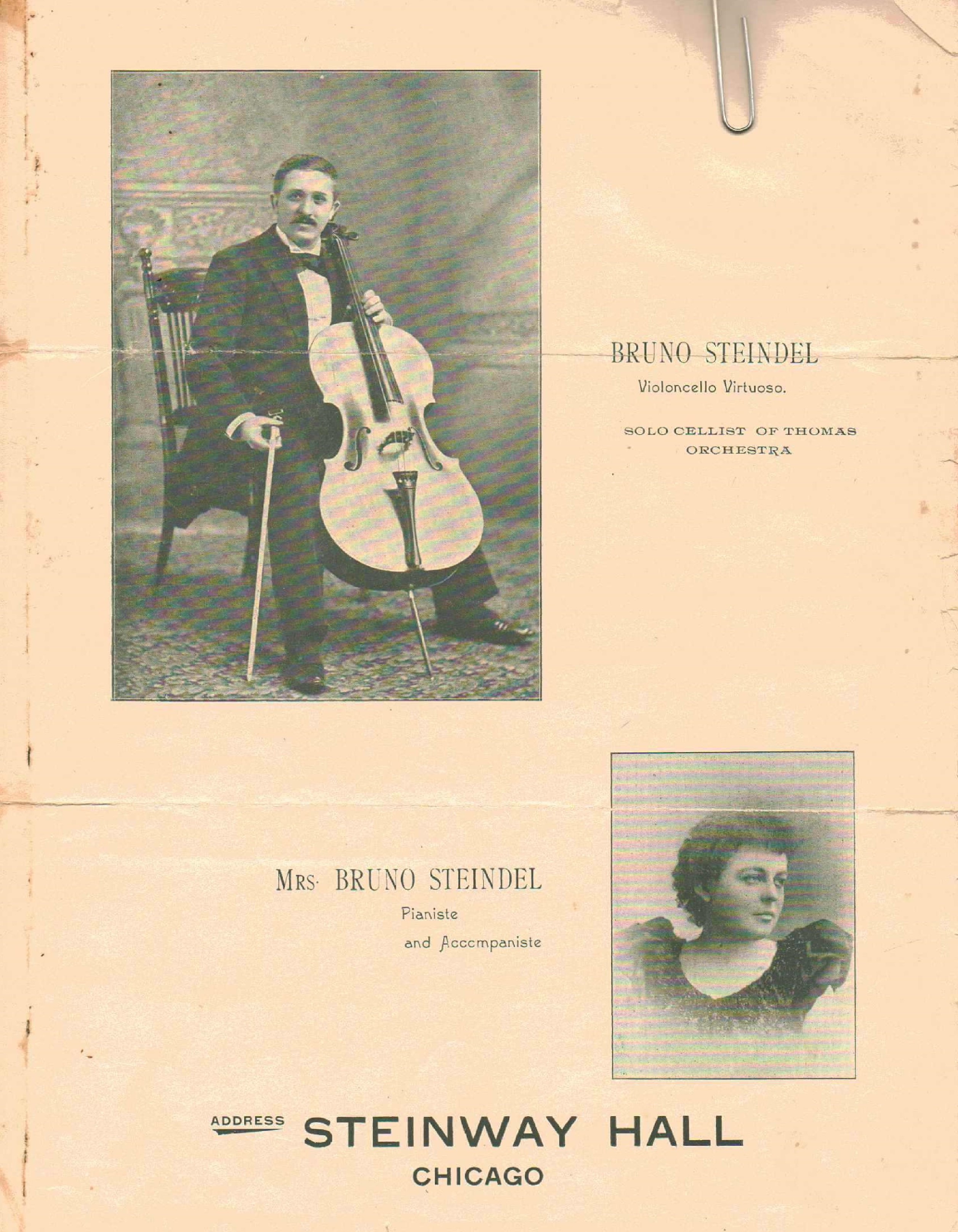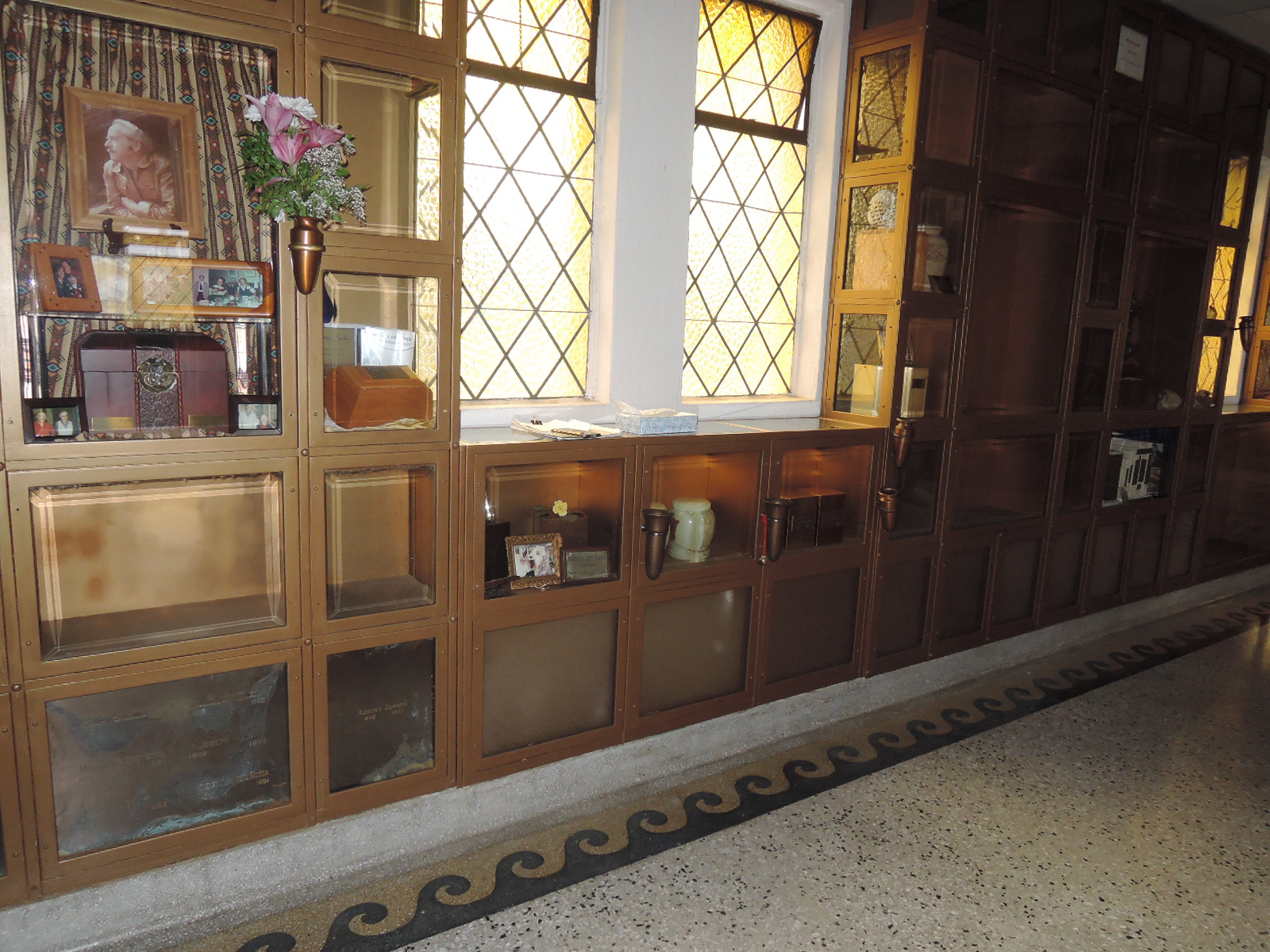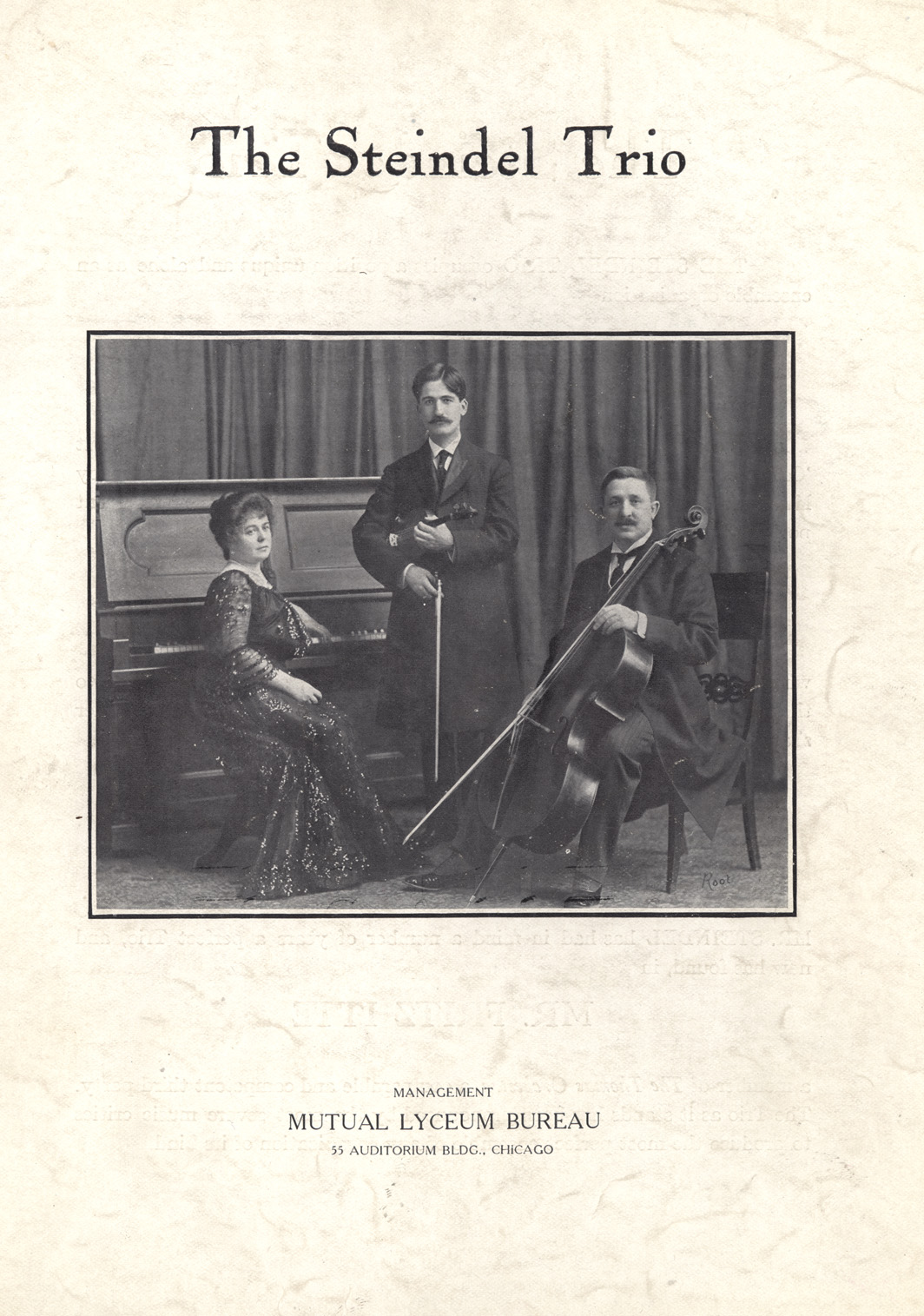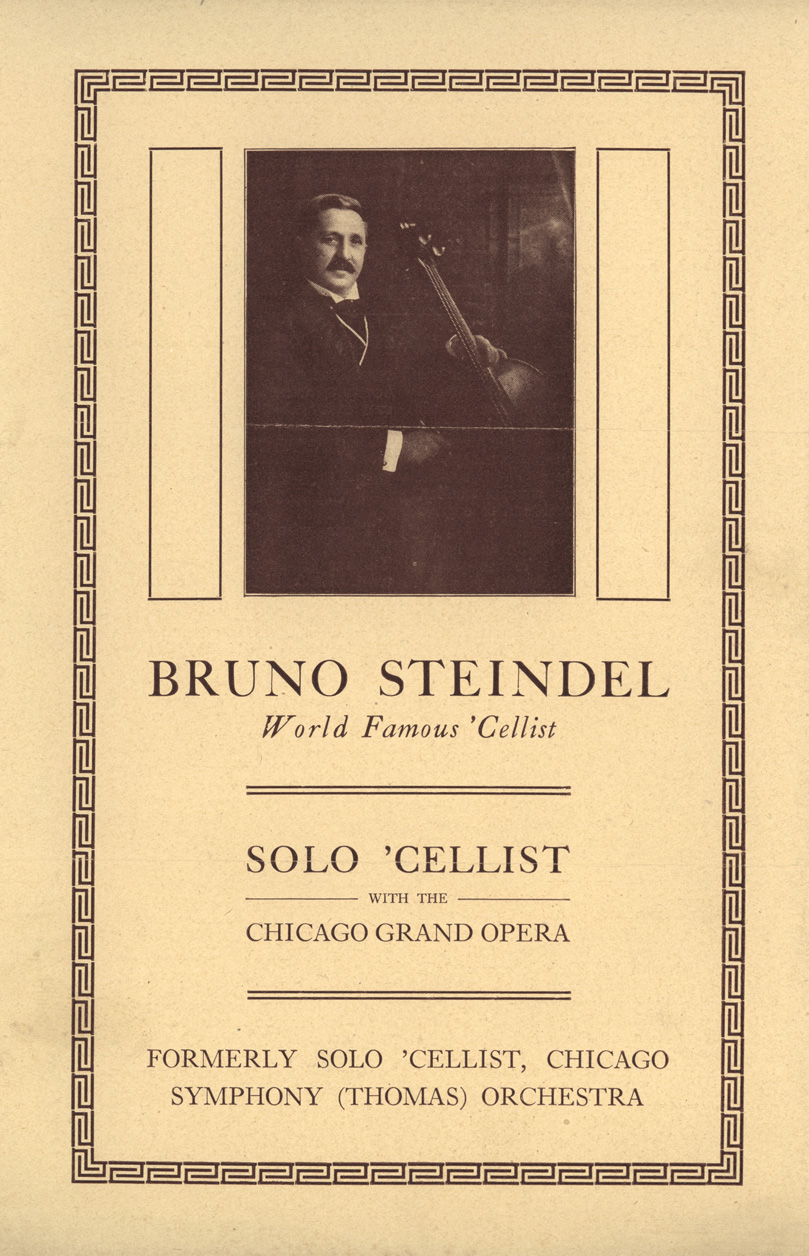During the off-seasons, Bruno and his pianist wife, Mathilda - an accomplished and decorated musician in her own right - played with the Steindel Trio and various other ensembles, including the Grand Opera.
After being forced to resign his position in 1918 amid highly publicized rumors of pro-German sympathies during President Woodrow Wilson's "100% American Movement," Bruno joined the Chicago Civic Opera Company. Though he was later exonerated of all accusations against him, he refused to return to the CSO.
After his wife's suicide in 1921, Bruno continued to play throughout the country. He later relocated to Southern California, where he died in 1949.
During the off-seasons, Bruno and his pianist wife, Mathilda - an accomplished and decorated musician in her own right - played with the Steindel Trio and various other ensembles, including the Grand Opera.
After being forced to resign his position in 1918 amid highly publicized rumors of pro-German sympathies during President Woodrow Wilson's "100% American Movement," Bruno joined the Chicago Civic Opera Company. Though he was later exonerated of all accusations against him, he refused to return to the CSO.
After his wife's suicide in 1921, Bruno continued to play throughout the country. He later relocated to Southern California, where he died in 1949.
